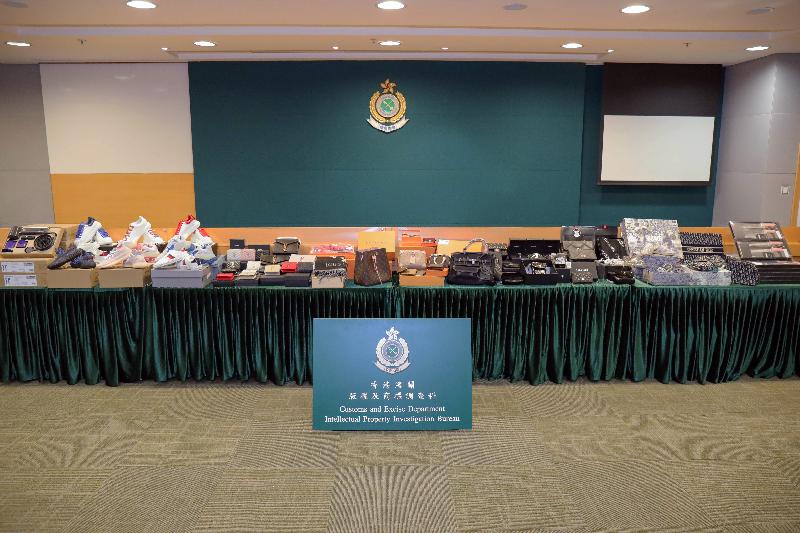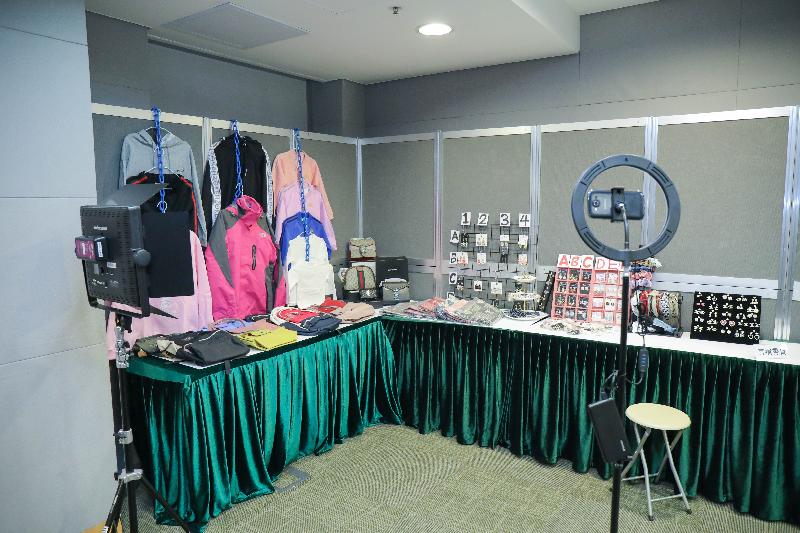Hong Kong Customs mounted a special operation codenamed "ThunderNet" between November last year and February this year to combat the online sale of counterfeit goods, targeting those counterfeiting activities on online platforms in the name of shopping agents and by means of live webcasts. During the four-month operation, Customs detected a total of 13 cases and seized about 2 700 items of suspected counterfeit goods with an estimated market value of over $1.8 million. Twenty-two persons were arrested.
Customs has conducted enforcement operations in view of the increasing popularity of online shopping during the epidemic. Investigations revealed there are two major types of modi operandi among cases of selling counterfeit goods online.
For the first type, online sellers solicit business in the name of a shopping agent and claim that they have a connection with the suppliers or a team of shopping agents in places such as Europe and the United States. Counterfeit goods are packaged as "goods purchased by agents" and are put on sale with discounted prices at dedicated pages and accounts on online platforms to attract customers. Another type involves the sale of counterfeit goods through live webcasts on social media, commonly referred to as "live streaming e-commerce". This mode of operation is becoming more popular and culprits have also taken the opportunity to sell counterfeit goods in an interactive mode.
Online sellers generally would use different kinds of excuses to avoid face-to-face transactions and request buyers to deposit money into designated bank accounts. The delivery mode would also be confined to express courier services so that buyers would not have the opportunity to check the authenticity of goods in person.
Through a big data analytics system, Customs officers traced and analysed suspicious dedicated pages and accounts by means of targeted investigations and deployments. During the "ThunderNet" operation, Customs officers posed as customers and conducted test-purchases online with the assistance of trademark owners. Eight and five cases involving the first and second types of modi operandi were detected respectively after multiple enforcement actions were taken. A total of 17 dedicated pages and accounts suspected of selling counterfeit goods on online platforms were raided while 17 residential premises and three shops were searched, resulting in seizures of the batch of suspected counterfeit goods, including handbags, clothes, shoes, accessories and household goods.
During the operation, six men and 16 women, aged between 20 and 69, were arrested. Investigations of the cases are ongoing and all arrested persons have been released on bail pending further investigations.
The Head of Intellectual Property Investigation Bureau of Customs, Mr Tse Kwok-keung, appealed to consumers at a press conference today (March 8) to purchase goods at reputable shops and websites. To lower the risk of purchasing counterfeit goods through online shopping, consumers should pay attention to the seller's history and whether only a single payment method is offered. They should also beware of the refund policies and any other protective mechanisms as well as to compare the prices of goods carefully. Consumers are advised to check with the trademark owners or authorised agents if the authenticity of a product is in doubt.
Customs also reminds online sellers not to sell counterfeit goods and to be cautious in merchandising since selling counterfeit goods is a serious crime.
Under the Trade Descriptions Ordinance, any person who sells or possesses for sale any goods with a forged trademark commits an offence. The maximum penalty upon conviction is a fine of $500,000 and imprisonment for five years.
Members of the public may report any suspected infringement activities to Customs' 24-hour hotline 2545 6182 or its dedicated crime reporting email account (crimereport@customs.gov.hk).
Follow this news feed: East Asia







